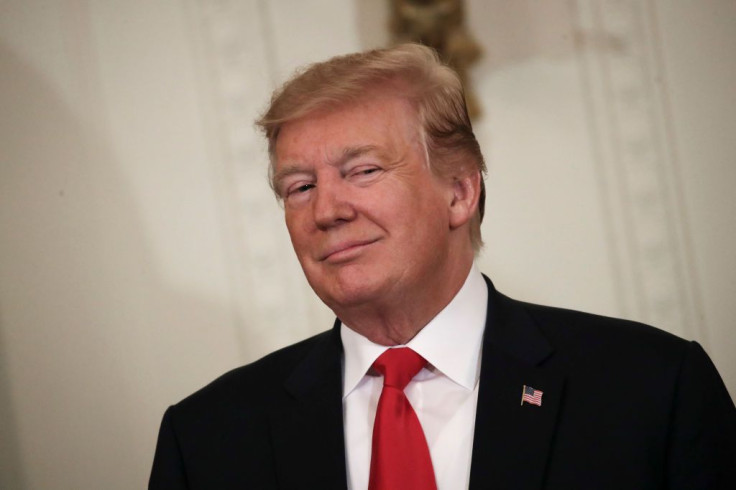Fake Instagram Accounts Part Of Coordinated Online Campaign To Attack Trump

An Italian analytics firm has unveiled a coordinated scheme by fake Instagram accounts to spread an anti-Trump message on the platform, Reuters reported.
These accounts, with tags such as "hatetrump" or "ihateTrump," are aimed at attacking Trump ahead of the 2020 elections, the Italian data research company Ghost Data said.
"We have uncovered a small operation that is very likely part of something bigger," Andrea Stroppa, the head of research at the company said. "I get the feeling that someone is experimenting. Testing the waters. They know what they are doing."
Stroppa said that he had identified 52,000 anti-Trump accounts on Instagram, with 350 of them being "suspicious." The posts had more than 35.2 interactions, with 3.9 of those interactions coming within the last two months. These interactions included liking a post or leaving a comment.
The posts tended to be published within minutes of each other. "Most content shared by these users is identical, while other images are slightly altered in colors, filter, partial and missing text," Stroppa said.
"We are investigating the accounts in question and have already removed those that we've found to violate our policies. Accounts used to manipulate or mislead the public are not allowed on Instagram and we will take action if we find any additional violations," a spokesperson for Instagram told Reuters.
During the 2016 election between Democratic candidate Hillary Clinton and Republican candidate Donald Trump, fake Russian accounts on Facebook, Instagram and other social media platforms were found to be posting anti-Clinton content. Clinton's policies were seen as less friendly to Russia and this caused a coordinated online disinformation campaign to be launched against her.
"What we can say is that this digital campaign against Trump uses some of the same methods that were used to attack Clinton in 2016," Stroppa said.
As it gets closer to the 2020 elections, fake news and disinformation are likely to be a huge topic, as social media platforms such as Instagram and Facebook try to prevent the spread of digital content aimed at swaying the elections.
© Copyright IBTimes 2025. All rights reserved.




















